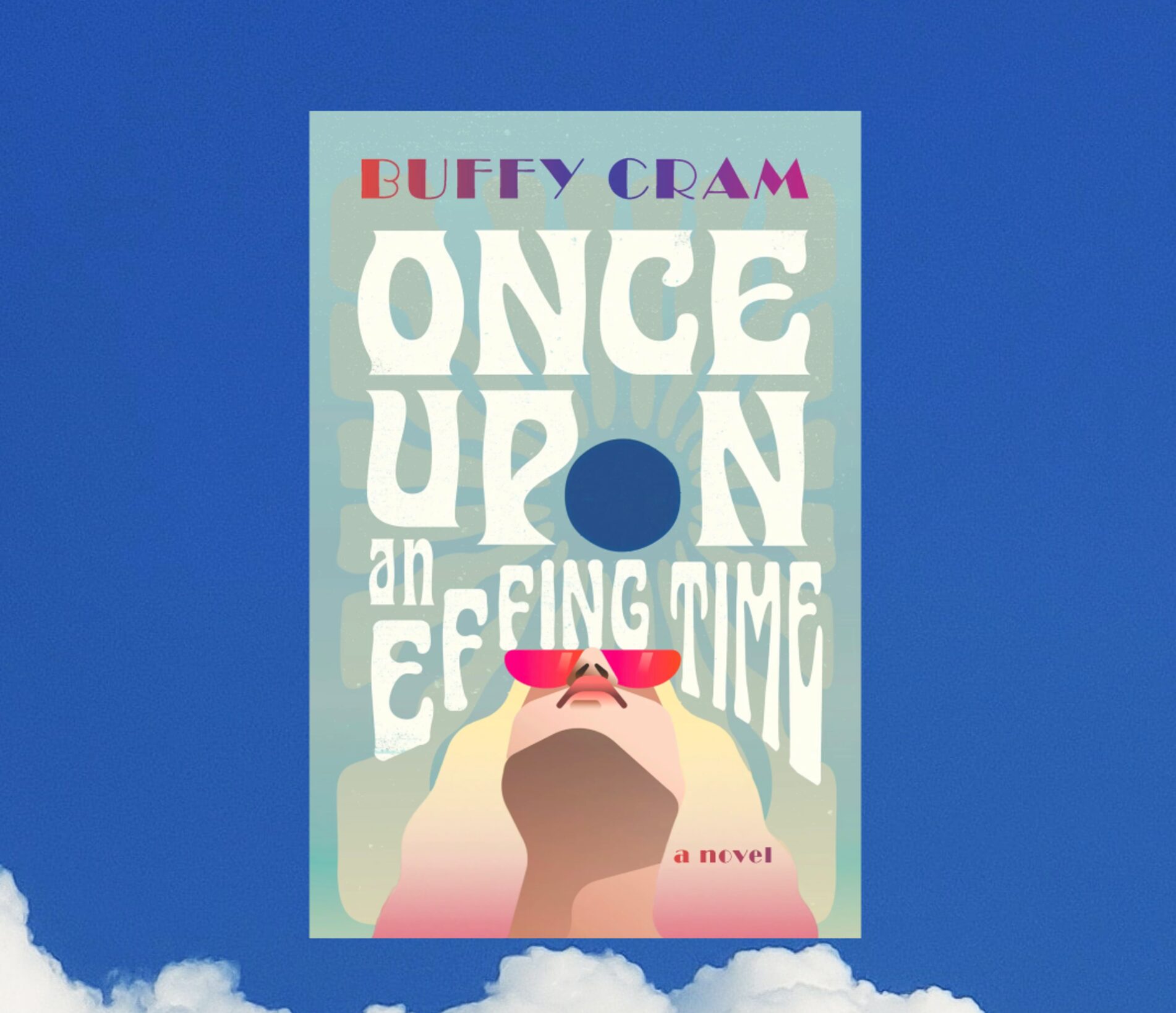
Once Upon An Effing Time
Buffy Cram
Douglas & McIntyre, 2023
Review by Roz Milner
There’s a line about the 1960s that says if you can remember it, you weren’t really there. But with that decade more than a half-century in the rear-view mirror, writers have been returning to it to try and explain how a time that created the Summer of Love also produced Altamont. There’s Emma Cline’s The Girls, Diana Spotta’s Eat the Document, and late last fall, Douglas & McIntyre published Buffy Cram’s novel Once Upon An Effing Time.
Once Upon An Effing Time reads like a hangover from the 1960s, a kaleidoscopic fable about that decade’s broken promises, faded dreams, and bad vibes. Or, to paraphrase Joni Mitchell, how the search to get back to the garden went so sideways.
It opens in 1969 with Elizabeth, a young girl with an eyepatch who lives with her mom in a trailer outside a cheese factory in Ontario. Her mom has dreams of becoming a music star out in California but they’re mostly just dreams. Until, one day, she packs up Elizabeth, steals a school bus, and flees to the United States. They abandon a dead-end job, a decaying mobile home, schoolyard bullies, and small-town biases. But instead of sunny California and the Summer of Love, Elizabeth and her mom get embroiled in a doomsday cult somewhere in the rural Midwest.
The book also flashes forward to 1980, when Elizabeth is fresh out of a mental institution and living in a halfway house. Under the care of a doctor named Bertha, Elizabeth begins the long and slow process of putting herself back together again and piecing together her past. She’s a mess of paranoia and delusions, and utterly without self-confidence.
Cram’s story builds until it’s almost too tense to breathe. There are blood-soaked riots, police busts, rock and roll, violence, and suspension around every corner. In the cult, everyone is on drugs except, perhaps, Elizabeth. She gets sucked into a world where the leader tears down people’s confidence in front of everyone while they’re all dosed with LSD. Before long she’s separated from her mom and shipped off to New York City to live with some other cultists. They protest the war in Vietnam, try to recruit new members, and preach on street corners. But at her core, she’s still a child and clings to people who ultimately take advantage of her insecurities and naiveté. Cram’s prose moves rapidly as Elizabeth struggles to keep her head above water in a turbulent city. Later, her encounters with LSD are captured by quick bursts of imagery and a sense of desperation that leaves one wondering what events are real or imagined.
In the chapters set in 1980, she’s still emotionally a child and has a heck of a time trying to find her place. She acts like someone who’s been burned one too many times. She distrusts people around her and is always waiting for the other shoe to drop, for the mistake she’ll make that will send everything crashing down around her.
In some ways, Cram’s book is reminiscent of Sarah L. Taggart’s novel Pacifique, another novel where the narrator has mental health issues and struggles with reality. But where Taggart’s story was ultimately one of love and self-acceptance, Cram’s is more about dealing with trauma. Elizabeth’s childhood was a disaster thanks to her flighty and manipulative mother. Add to that a diagnosis of paranoid schizophrenia and a lengthy stay in a mental institution, and Elizabeth’s been left completely unable to process life on her own.
Indeed, Elizabeth’s inner monologue reveals a person who spent her life being looked down on and feeling unworthy. She can’t define herself except in words of loathing and self-pity. Cram writes: “I looked like the kind of person you wouldn’t want to sit next to on the subway. I looked like someone who’d lost nearly everything.” And: “I know the past isn’t done with me. It’s a hungry animal nipping at my heels.” Elizabeth has spent so much time beating herself up for other people’s mistakes that she feels she doesn’t deserve love and that she’ll eventually destroy anything she touches. But for all its bleakness, Cram never loses heart and by the novel’s end, there’s a sense of hope for Elizabeth, that despite everything she’s been through she might still make it.
Once Upon An Effing Time is Cram’s first novel and in it, she shows a lot of skill. She’s able to keep two storylines going at once, deftly moving back and forth without showing her hand. There are occasionally moments where things feel like they’re coming off a checklist (the Hare Krishna representing the ultimate acid burnout; characters openly stating that the 1960s NYPD is racist), but the back half of the book builds up momentum and has an almost hallucinatory feeling that keeps readers guessing as to what really happened to Elizabeth in the big city. Those who enjoy reading about the darker side of the 1960s or can handle some pretty heavy subject matter will find this one engrossing. I certainly did.
Roz Milner (she/her) is a freelance writer and critic based in the Toronto area. Her work has appeared in Broken Pencil, Lambda Literary, Xtra, The Quarantine Review, The Temz Review, and many other places. She is currently working on a collection of short fiction.